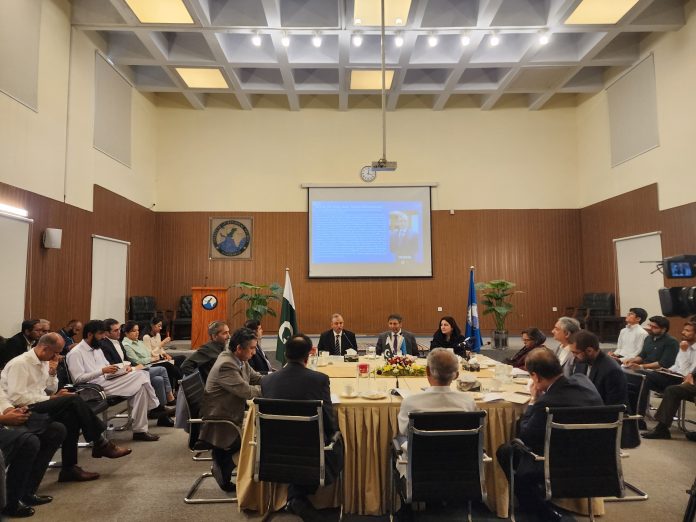Abid Raza
Islamabad: The Institute of Regional Studies (IRS) hosted a seminar titled “Assessment of Renewed Security Challenges to CPEC Post-Indo-Pak Escalation.” The event brought together prominent practitioners, diplomats, policymakers, experts, academics and intelligentsia who collectively advocated for strategic regional alliances, robust internal reforms, economic resilience, advanced security infrastructure and proactive diplomatic engagements to overcome current and emerging challenges to China Pakistan Economic Corridor.
Amb. Naghmana Hashmi, Pakistan’s former envoy to China, linked increased terrorism with broader geopolitical tensions, particularly western apprehensions towards China’s rise. Analyzing how recent Indo-Pak escalations dispelled myths surrounding India’s military dominance, prompting Western powers to reconsider their strategic reliance on India, she urged comprehensive internal reforms, particularly addressing socio-economic grievances in Baluchistan.
Major General (Retd) Dr. Samrez Salik, with a PhD on CPEC, emphasized Pakistan’s critical transformation from a security-centric to an economically driven state, dependent significantly on CPEC’s success. He advocated a strategic regional alliance comprising Russia, China, Pakistan, Iran, and Turkey to stabilizethe region. Internally, he called for robust reforms to address terrorism, corruption, political instability, and bureaucratic inefficiencies.
Amb. Major Gen (Retd) Muhammad Raza, who also boasts a PhD on CPEC, focused on the integration of socio-economic dimensions within financial regulatory frameworks. He stressed on the need for stimulating local economies by imitating successful community banking models. He also highlighted CPEC’s crucial role in societal advancement and advocated strengthening Pakistan’s border control and security infrastructure through regional collaboration, particularly with China and Turkey.
Amb. Jauhar Saleem, President, Institute of Regional Studies, in his concluding remarks, emphasized that alongside the kinetic challenges faced by CPEC project, we must also address the economic issues, such as the need for CPEC to deliver on local development and creation of jobs on a much wider scale. Underlining the need for building institutional capability, bureaucratic efficiency and service delivery capacity, he noted that CPEC benefits have to reach the grassroots level to help alleviate security challenges.

















